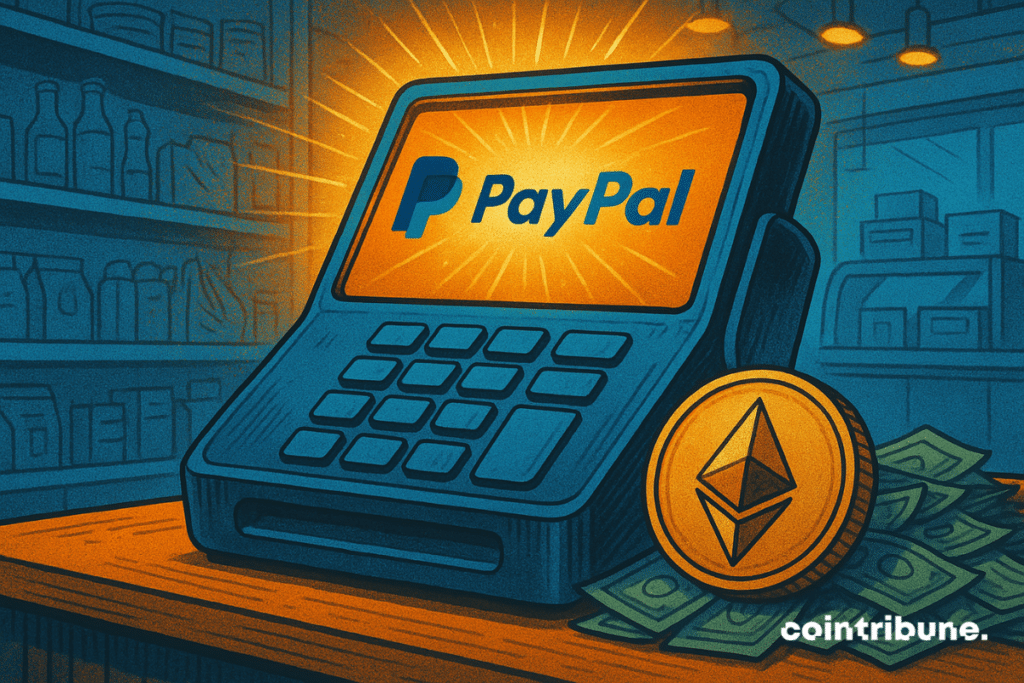PayPal Now Lets You Pay At Stores With 100 Different Cryptocurrencies
PayPal is doubling down on crypto. The payments giant just revealed a new checkout feature that lets U.S. merchants accept payments in over 100 cryptocurrencies, including Bitcoin, Ethereum, Solana, and major stablecoins like USDT and USDC.

In brief
- PayPal now lets U.S. merchants accept payments in over 100 cryptocurrencies, automatically converting them to PYUSD or fiat.
- The company charges a 0.99 % fee, far below typical credit card processing costs, and aims to simplify global transactions.
- The move boosts PayPal’s stablecoin strategy, following regulatory clarity from the GENIUS Act and rising competition from Stripe and Coinbase.
PayPal’s new feature
The new tool automatically converts crypto payments into either fiat or PayPal’s own stablecoin, PYUSD, helping merchants avoid volatility while benefiting from faster and cheaper cross-border transactions. PayPal says its 0.99 % crypto transaction fee is up to 90 % lower than typical credit card fees, which often start around 1.75 %.
For now, the feature is only available to U.S.-based merchants, excluding those in New York, and integrates with leading wallets like Coinbase Wallet, MetaMask, Kraken, Binance, and Phantom. The company specifically highlights the feature’s potential to improve global commerce for small and medium-sized businesses by streamlining crypto payments.
Stablecoin strategy pays off
This move comes as PYUSD, PayPal’s dollar-backed stablecoin, continues to gain ground. Since the start of 2025, its market cap has jumped nearly 80 %, rising from $497 million to $894 million. By converting all crypto payments into PYUSD or fiat, PayPal further strengthens PYUSD’s role as a key bridge between digital assets and traditional finance.
The announcement closely follows the passage of the GENIUS Act, which provides new legal clarity for stablecoins in the U.S. Payments companies like PayPal, Stripe, and Coinbase are using this momentum to build out crypto-powered payment rails.
A growing crypto payment race
Stripe, a major competitor, launched its own stablecoin checkout tool last year using USDC. That feature saw adoption in 70 countries on day one. In June 2025, Stripe deepened its crypto commitment by integrating with Coinbase, adding support for the Base network and enabling fiat-to-crypto flows directly from Stripe’s UI.
Meanwhile, Coinbase itself has been active in the merchant space since 2018 through Coinbase Commerce. In 2024, it introduced the x402 protocol, a crypto-native payment system built for APIs and AI agents, further automating crypto-to-crypto payments using USDC on Base.
The fintech space is quickly building the infrastructure for borderless, on-chain commerce. PayPal’s entry into large-scale crypto acceptance signals the next phase in stablecoin utility: real-world payments.
Maximize your Cointribune experience with our "Read to Earn" program! For every article you read, earn points and access exclusive rewards. Sign up now and start earning benefits.
I've been passionate about crypto for nearly a decade, ever since I was young and first became curious about investing. That early spark led me to years of research, writing, and exploring the future of decentralized tech.
The views, thoughts, and opinions expressed in this article belong solely to the author, and should not be taken as investment advice. Do your own research before taking any investment decisions.